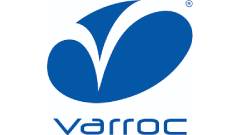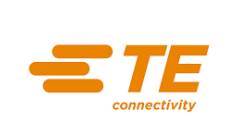Post Diploma in Power Electronics – CP10
August 10, 2023 2026-02-13 12:49Post Diploma in Power Electronics – CP10
Post Diploma in
Power Electronics - CP10
Duration
1 year (2 semesters)
Program type
Post Diploma
Program Fee
Per Semester (Refer Brochure)
Department
Electronics
- About
- Eligibility
- Summary
- Training Methodology
- Curriculum
- Outcomes
- Campuses
About
Power electronics involves the use of solid-state electronics to control and convert electric power. This course covers the application of power electronic converters in modifying electrical energy. Students learn about semiconductor-switching devices like power diodes, SCR, and transistors for power conversion. The course also covers electrical machines, basic and advanced electronics concepts, microcontroller applications in the power industry, and electronic instrumentation techniques for high-power systems. Practical training includes hands-on experience in high-frequency DC converters, PCB designing and fabrication, and power component mounting. Students work on projects to apply their theoretical knowledge before completing the course.
Eligibility
- Entry Norms : Diploma
- Eligibility:Pass in Diploma in Electronics Engg. / Electrical Engg. /Instrumentation Engg. / B.Sc. Electronics
- Maximum Age Limit: No Age Limit
Summary
After completing this program, trainees can expect to possess the following skills:
- This course offers specialized training in Power Electronics, instrumentation, and control systems.
- The syllabus aligns with industry requirements and focuses on technical skills development.
- Trainees gain expertise in designing high-frequency DC and DC converters, AC and DC drives, and high-voltage PCBs.
- Upon completion, trainees can apply their knowledge to industrial projects and work effectively in diverse environments.
Training Methodology
The program offers the following learning opportunities:
- Hands-on experience on converters
- Familiarization with various software
- Designing and Fabrication of PCBs
Curriculum
- Power Electronics
- Electrical Machines
- Electronic Devices and Circuits
- Microcontrollers
- PCB Design and Fabrication
- Programmable Logic Controller
- Electronic Instrumentation
- Control Systems
- Advanced Microcontrollers
- Practical Projects
Outcomes
Upon completing this course, a trainee will have the ability to:
- Apply power electronics knowledge to control electrical systems.
- Design and conduct experiments/projects, analyze power electronic converters and drives and interpret data.
- Design systems or components to meet specific requirements and overcome constraints.
- Address multidisciplinary technological challenges by incorporating advancements in power electronics.
- Communicate effectively about complex engineering activities with the engineering community and society.
- Employ independent and reflective thinking to solve problems in power electronics and related fields.
- Utilize techniques, skills, and modern engineering simulation tools for designing and developing power converter topologies.
Campuses
NTTF Electronic City Centre (NEC)
#40/40A, Electronic City, Hosur Road, Bangalore 560100
Phone: +91 080-42623506 / 6364864681 / 6364864697
Email: nttf-ecity@nttf.co.in
Campus Placements
At NTTF, we connect you with top-notch companies, opening doors to exciting career prospects. Join us and unlock a future filled with success, growth, and limitless potential!























Student Testimonials
We at NTTF are overwhelmed to receive positive feedback consistently from our students and alumni over the years. Here are a few alumni testimonials highlighting our programs and training facilities.


